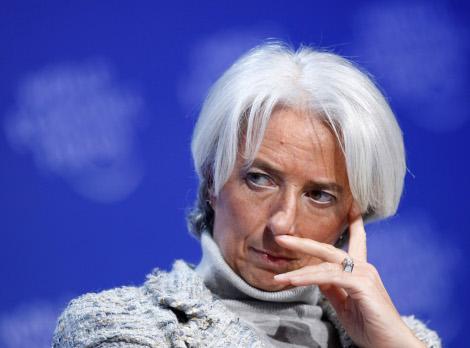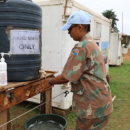Sudan: Time to Begin a National Constitutional Review
In less than a year’s time, Sudan will need a new constitution – or (more likely) two. The Interim National Constitution expires on 9 July 2011. On that date, if the southern electorate votes as expected and all subsequently goes smoothly, the new Republic of South Sudan, or whatever name is chosen by its people, will come into being.
Northern Sudan, meanwhile, will enter a new political era. It will inherit many issues of national identity and governance, almost certainly unresolved.
For the last five years, the CPA has been the central pillar of Sudan’s governance. Its centerpiece is the relationship between north and south. Additional buttresses include the Abyei protocol, the Popular Consultations in South Kordofan and Blue Nile, the Eastern Sudan Peace Agreements, and a succession of attempts to reach a peace agreement for Darfur. All of these latter mechanisms and efforts are based on the assumption that the CPA bears the greater weight of the Sudanese political system. With the partial exception of Abyei, all deal with peace and governance within northern Sudan.
When the CPA passes into history, the northern Sudanese will find themselves in a new and dramatically reconfigured political landscape. The peoples of South Kordofan, Blue Nile, Eastern Sudan and Darfur will be worried that the mechanisms for addressing their grievances, potentially workable as part of the overall CPA architecture, will no longer function. Without the central pillar, they worry, the buttresses will fall.
The CPA doesn’t provide strong mechanisms for addressing the challenge of what happens next in northern Sudan, following southern secession. There is just one constitutionally-mandated procedure, which is the National Constitutional Review Commission, specified in the CPA’s Article 2.12. The first task of the NCRC is to incorporate the CPA into the INC. The second is to review state constitutions to ensure their compatibility with the INC. These have been done by the NCRC’s legal team.
A third task is laid out in subsection 12.10:
“Without prejudice to the provisions of the Peace Agreement, as a subsequent task and during the course of the six year Interim Period, the National Constitutional Review Commission shall be responsible for organizing an inclusive Constitutional Review Process. The process must provide for political inclusiveness and public participation.”
This task has not begun. The NCRC needs greater capacity (it is not only a task for lawyers) and above all, high-level political backing, to undertake this task.
The inclusive and participatory constitutional review should not wait for the end of the Interim Period. Nor need it await the outcome of the referendum. The issues are known in advance. The more that the discussions can be substantively underway, the more that northern Sudan’s diverse communities, many of them fearful of what the post-referendum future holds in store, can become engaged in a national debate on their collective future, the better.







Dear Alex
When you say as”expected”,as “expected” by whom?
People in the South are to choose between”Unity or secession”.
The Crocodile next to the canoe
Dear Alex
When there is a “crocodile next to the canoe” one thinks only of the “crocodile”. That is the situation with the Referendum in Sudan. All other issues seem to be on hold in-spite of some rhetoric.
If either GOS or GOSS start talking about a new constitution now, that will open new “cans of worms” for them. The NCP and the opposition parties shall not be able to see eye to eye. The population may say: Again! Is that really a priority now? “National interest” is no longer a converging agent for them. Even the NCP and the “International Community” shall not be able to see eye to eye on the fundamentals of a new constitution. The SPLM does not want to rock the status quo that seems to be the most convenient vehicle for their immediate objectives.
Although “political Islam” has failed as a doctrine for statehood and nation building even in the North, it remains the ultimate pillar of “Ideological legitimacy” of the NCP to remain in power. It is the “voice” that is raised to silence others.
5 different constitutions were developed and 4 were suspended. That was in 1956, 1973, 1985, 1998, 2005. The 2005 will become invalid if or when south Sudan separates; or not. It is really no problem for Sudan to develop and adopt a constitution as it is no problem to cancel it or supersede it!
Constitutions are meaningful only if nation building is a reality and if the governance pillars are solid. Both are lacking in Sudan. After July2011, a new shape for the “nation” may emerge and the possible transformation may dictate new structures of governance. May be then a” constitution” comes in the radar screen. I do not believe that a “Permanent constitution” is possible in Sudan for generations to come. Wasn’t 1973’s meant to be permanent? 1956, 1964, 1985 and 2005 were all crafted and meant to be “Transitional”. It seems that “constitutional maturity” takes ages!
stay well
Tag Elkhazin
Dear Alex
And if there will be a new constitution, theoretically there should be new elections too, isn’t that so? How is the position of the Northern opposition parties these days? Are they still squabbling about inconsistencies with the past elections or are they trying to push for a more constructive discussion? They seem masters in missing no opportunity to miss an opportunity.
Dear Tag Elhazin
I like your point with the crocodile and you might be partially right, but I think there is another issue here at play. Because of the insistence of the CPA to work for unity, there has been practically no constructive discussion about separation. Yes there has been some contingency planning, some borders demarcated, etc. But practically no one seems to ask the question how to make separation a more constructive outcome. To use your picture with the canoe, it’s as if you drive with a canoe towards a cataract and whenever someone asks how to cross the cataract someone answers, no we agreed to work for the cataract to disappear.
Best,
Moritz Mihatsch
Dear Moritz
Your analogy of the cataract is more eloquent than the crocodile beside the canoe.
There is some work going on, not to make separation more constructive, but to try to untangle issues that can be problematic. However, these efforts do not seem to be coordinated. Debt sharing, oil, citizenship and immigration, Nile Waters are all issue, if cordially resolved, can make separation more constructive.
I guess the awareness that the cataract will not disappear is growing. Graham Thomas wrote “Death of a Dream” in 1990. The last words in the book read” Insha’allah, the Sudanese will find a unity of purpose and policy for the future”. Well they have not! Late Graham himself was probably dreaming.
Can we possibly look for where do the mutual interests are? Where the interdependence of needs is? We must change the assumptions and hence the objectives.
When experts are doing conflict resolution, they do “PEACE and conflict” analysis. if there are no genes and seed of peace between communities, resolving conflicts may be a case impossible. Until today, everyone is looking for where the bad news are; where the conflict is; the doomsday coming; the negativity of things.
May be it is time to look for the possible ingredients of coexistence within two states? Bridges that can be build by southerners in the north and northerners in the south? Cooperation within regional institutions? Shared history; as controversial as it is? Elements of economic cooperation? But that was taboo and impossible before the full realization of separation started to settle in.
Right now: “evil is in the eyes of beholder” and unless that changes the right lens shall not be used. Attitudes must change first.
Tag Elkhazin
The NCP’s progression — post-election that is — is unquestionably clear. They are containing the unpredictability of domestic issues.
Darfur’s security situation is being controlled through the exercise of military muscle flexing and sovereignty exercises (including recent demands to hand over the alleged instigators of previous clashes.) A “conclusive” peace agreement is being facilitated with the LJM through the inclusion of civil societies and the incipient promise of development and power-sharing. JEM have lost international public support. With regards to southern Sudan, the GOS is fixated on technical preparations for the referendum and border demarcations. Ali Karti has thrown public image bait in voicing superficial concerns of the freedom and fairness of the referendum vote. Wealth-sharing concessions will be agreed to as the NCP’s conceding bargaining tone is superseded by its need for survivability. On foreign policy, the NCP is gaining economic favor with the Conservatives in Britain. The Obama administration is too soft, Sudan-divided, and domestically pressed about prolonging the Democrats’ mid-term election and majority occupation of Congress. Questions about the U.S. President’s two-term survivability have emerged, which further weakens the Administration’s attention span on Sudan. To add to this exacerbation, the NCP don’t take Democrats seriously, ever since the U.S.’s Sudan-influence has succumbed to neglect. The NCP accurately calls bluffs and sees empty pockets. It’s a remarkable piece of diplomatic achievement. This discipline and adaptivity is to be expected by the incumbents, but we should take a minute to recall how the Sudanese liberal elite once forecasted that the NCP was doomed in light of then insurmountable obstacles.
The rightward pull of the NCP shall see a continued prolongation of quasi-sharia police state, which shall conclude the decade-plus transformation of the NIF from a military initiative into a Tunisia-style police uniformed, albeit-religious law enforced republic. Welcome to NCP Sudan 2.0. Are we ready for the next 25 years yet?
The true weakness of Sudan’s political economy is distorted by the oil economy. Therein lies the NCP’s visible achilles heal.
As I’ve suggested before, the terminal problem rests in northern Sudan’s nativist nostalgic pull towards some reversion to the True and Just Islamic governance, in secular form or not. Lesser Sudan’s upcoming homogeneity will be more vulnerable to the NCP’s adaptations, as the majority population still clutches the short straw of Balad Islamiya end-time thinking. Clear lines must be drawn in hopes of countering this defective ambiguity harbored by the disgruntled and apocalyptic masses. The false peace and promise of the afterlife is a cop out. In metaphysical terms, I’m saying that invoking (and maybe provoking) some internal hellfire might make the NCP more fearful of us. That is one alternative to the absentia of leadership.